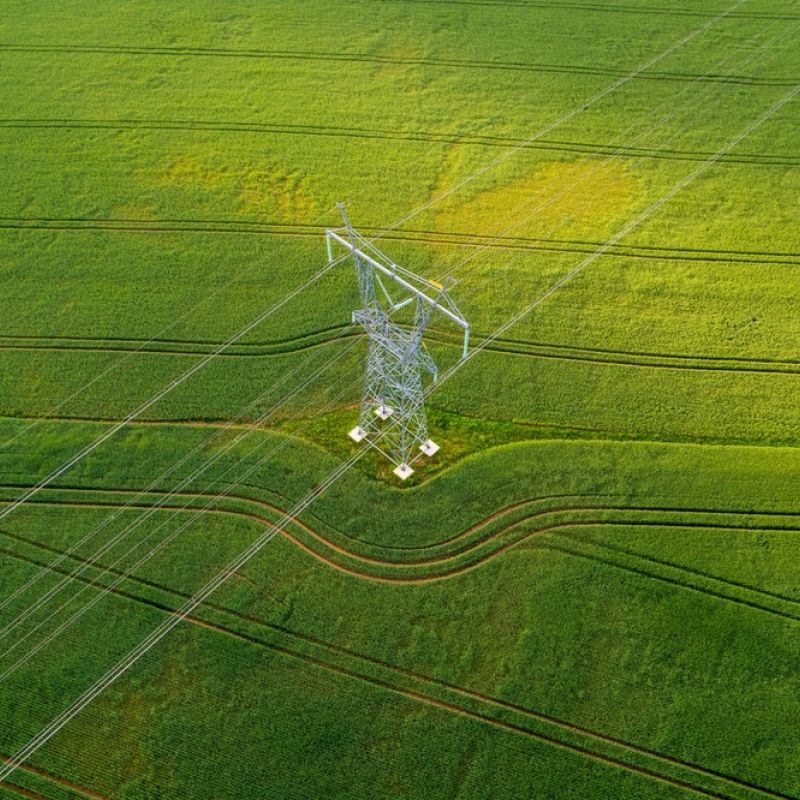View the list of disputes in relation to the Regulatory Investment Test for Transmission and Distribution, or in relation to AEMO's Integrated System Plan.
On this page
Sidebar navigation
System planning
Our role
The AER is responsible for resolving disputes relating to the application of the Regulatory Investment Test for Transmission (RIT-T) and Regulatory Investment Test for Distribution (RIT-D) by network service providers. We also have a role in resolving disputes relating to AEMO’s preparation of the Integrated System Plan (ISP).
Please note: A dispute must be raised by writing to the AER within 30 days of a project’s conclusions report, or the ISP being published.
We are limited on the topics of the RIT that we can review and we can only review disputes on the ISP relating to compliance with prescribed ISP processes.
More information on how we address disputes can be found in chapter 5 of our RIT-T application guidelines, RIT-D application guidelines or in the cost benefit analysis guidelines.
How to raise a dispute
A RIT dispute cannot directly challenge the merits of the outcomes of the RIT, which includes the identified preferred option.
A dispute may be raised if a proponent has not applied the RIT in accordance with the NER or with respect to the requirements of our guidelines.
As part of a dispute, the AER may determine that a proponent has incorrectly applied the RIT. In addition, we may determine a dispute to be valid where it relates to:
- For RIT-Ts:
- the basis on which the RIT proponent has classified the preferred option as being for reliability corrective action
- the assessment of whether the preferred option will have a material inter-network impact as per clause 5.16B(b)
- For RIT-Ds:
- a manifest error in the calculations as per clause 5.17.5(a).
Actionable RIT-T disputes
The dispute process for RIT-T projects that are identified as actionable in the ISP is generally the same as for non-actionable RIT-Ts except for some key restrictions placed on us by clause 5.16B of the NER. These restrictions are:
- We cannot accept disputes on actionable ISP projects for matters where the project assessment conclusions report has used or relied on matters in the most recent ISP or the Inputs Assumptions and Scenarios Report.
- For actionable ISP projects, we cannot make a determination that directs a RIT-T proponent to amend the project assessment conclusions report on the basis the RIT-T proponent has not correctly assessed whether the preferred option will have a material inter-network impact.
How to raise a dispute
If you wish to lodge a dispute within 30 days of the publication of the project’s conclusions report, please provide a dispute notice to systemplanningregulation aer [dot] gov [dot] au (systemplanningregulation[at]aer[dot]gov[dot]au) and to the project proponent the dispute is raised against.
aer [dot] gov [dot] au (systemplanningregulation[at]aer[dot]gov[dot]au) and to the project proponent the dispute is raised against.
This notice should include:
- the grounds of the dispute
- the disputing party’s name, a contact officer, address, email and telephone number
- the details of any other known parties involved in this matter
- if applicable:
- any submissions the disputing party made to the proponent during the RIT process
- the proponent’s reply to these submissions
- details of any meetings between the disputing party and the proponent.
We ask that any confidential information is clearly labelled and that a non-confidential version of the dispute is also provided where applicable.
As part of our dispute investigation we may request further information in writing which will provide a timeframe to submit the information and to whom this information should be provided.
We will make a decision within 40 days of receiving the dispute notice unless we seek further information or we issue a notice of extension due to the complex nature of the issue.
If you wish to lodge a dispute, within 30 days of the publication of the ISP, please provide a dispute notice to systemplanningregulation aer [dot] gov [dot] au (systemplanningregulation[at]aer[dot]gov[dot]au) and to AEMO.
aer [dot] gov [dot] au (systemplanningregulation[at]aer[dot]gov[dot]au) and to AEMO.
This notice should include:
- the grounds of the dispute
- the disputing party’s name, a contact officer, address, email and telephone number
- the details of any other known parties involved in this matter
- that the disputing party made a submission in the prescribed ISP process
- or if not, the reasons why they did not and why they should be entitled to raise a dispute
- that AEMO has not observed one or more prescribed ISP processes
- the reason why we should accept the dispute notice
- any submissions the disputing party made to AEMO during the ISP process
And if applicable:
- AEMO’s reply to these submissions
- details of any meetings between the disputing party and AEMO
- details of any unanswered requests made by the disputing party.
Any confidential information must be clearly labelled and a separate non-confidential copy must also be provided.
As part of our dispute investigation we may request further information in writing which will provide a timeframe to submit the information and to whom this information should be provided.
We will make a decision within 40 business days of receiving the dispute notice unless further information is sought.
Our decision making process
Once a dispute has been raised with the AER, and we consider it valid, we will review it within 40 business days. The time taken to make a decision may be extended if we require further information from the disputing party or AEMO.





